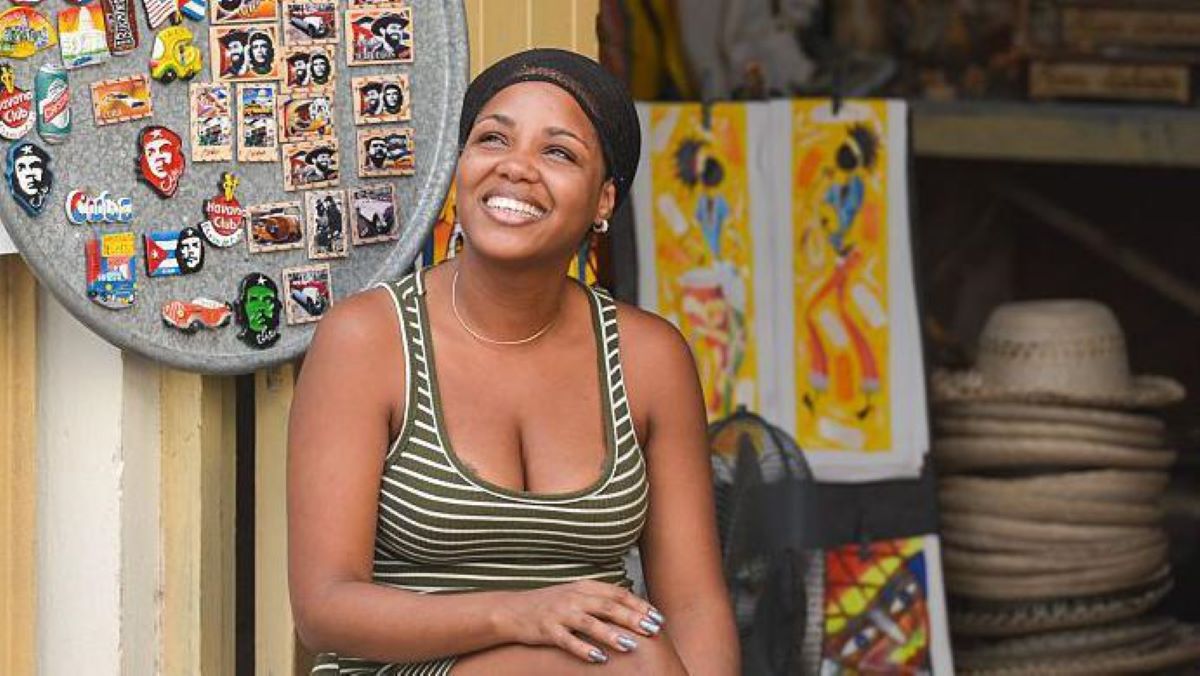Cuban businessmen can now open bank accounts in the United States.
It is one of the new measures announced by Joe Biden’s government to promote the development of the emerging private sector on the island, which is going through a severe economic crisis.
Starting this Tuesday, entrepreneurs can “remotely open, maintain and use US bank accounts, including through online payment platforms, to carry out transactions,” the Treasury Department announced in a statement.
It specified that the account holder may be physically located in Cuba, the United States or a third country.
The Treasury also authorized “U-turn” transfers, which Donald Trump’s administration had vetoed to Cubans in 2019.
These are fund transfers that begin and end outside the United States, where neither the sender nor the recipient is under US jurisdiction.
“Support for the Cuban people”
According to the US government, the measures facilitate payments for transactions in the Cuban private sector, as well as remittances.
They benefit “private cooperatives, small private companies and sole proprietorships located in Cuba with up to 100 employees” and exclude designated officials of the Cuban government and the Cuban Communist Party “to ensure that they do not take advantage of US actions intended to benefit businessmen.” independent of the private sector,” according to the statement.

The measures are part of the “support for the Cuban people” policy announced by the Biden government in May 2022 and reverse some of the strong restrictions imposed by the previous Donald Trump administration.
During his term (2017-21) Trump toughened sanctions on Cuba within the framework of the financial and commercial embargo that the United States has imposed on it for six decades, and included the country on the list of sponsors of terrorism, which further limited their international transactions.
The communist regime of Cuba, a country in permanent economic crisis since the 90s, has allowed the establishment of some private businesses in the last three decades.
It has been gradually opening its economy to private capital, although with many restrictions and in specific sectors.
In Cuba today there are about 11,000 private companies that generate approximately a third of jobs, according to government data.
Limited scope?
Experts agree that it is too early to know the scope and effects of these measures, which will be seen in the coming months.
Some, for now, have shown skepticism.
“This is undoubtedly progress, but it is subject to a series of practical limitations that can limit its impact,” Cuban economist Ricardo Torres, a researcher at the American University in Washington DC, told BBC Mundo.
Torres believes that the measures would only benefit a minority group of Cuban businessmen: those who are engaged in international trade or import products from the United States.
“For the majority it will not change their lives, because they do not carry out international transactions,” he points out.

Another limitation, he points out, has to do with the role of US banks.
“The government will authorize Cubans to open accounts in the United States, but it does not force banks to open those accounts for them. They are private entities and they may refuse to get involved in this type of operations to avoid legal problems in the future,” he explains.
Thus, for banking entities the cost-benefit ratio may not be too attractive, he points out.
And to this is added the political uncertainty that, with less than six months left until the US presidential elections, conditions both Cuban banks and businessmen who want to benefit from the new measures.
“The same Cuban businessman may think: ‘why am I going to open the account if Trump later wins the elections and they close it?’” he exemplifies.
Government criticism
The Cuban government also considered that the new United States measures are “limited” and protested because “they do not touch the body of the blockade,” in reference to the embargo.
“They also do not modify the extreme measures and regulations applied by the governments of former President Donald Trump and the current president, Joe Biden,” said Johana Tablada, deputy director for the United States of the Cuban Ministry of Foreign Affairs.

Tablada alleged that the provisions exclude the majority of the Cuban population and predicted that it will be difficult to apply them due to the country’s inclusion on the list of sponsors of terrorism.
“When President Barack Obama (2009-2017) announced them, they could not be carried out. “The banking entities were terrified of the fines stipulated by the blockade,” said the official Prensa Latina agency, citing the representative of the Cuban government.
It also accused the US of trying to turn the private sector into an “agent in favor of the change they want here, which is nothing more than regime change” and of “trying to separate, through advertisements and strategies, the sector private from the public.”
However, he stated that “Cuba is studying these decisions and, if they do not violate national legislation and mean a true opening, even for a segment of the population, it will not put obstacles to their application.”

Click here to read more stories from BBC News World.
You can also follow us on Youtube, instagram, TikTok, x, Facebook and in our new whatsapp channelwhere you will find breaking news and our best content.
And remember that you can receive notifications in our app. Download the latest version and activate them.
- How serious is the economic and energy crisis that Cuba is experiencing (and how does it compare to the “special period”)?
